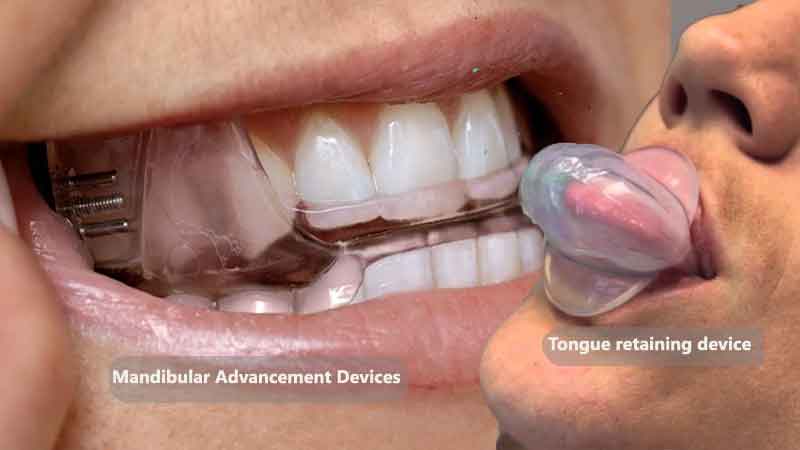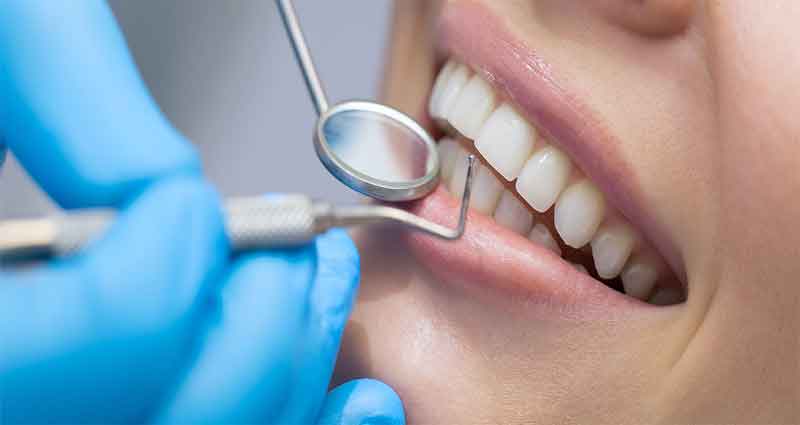
What do the dentist and sleeping have to do with each other? More than you might think. Sleep dentistry is what dentists do to help people with snoring and related sleep problems. Obstructive sleep apnea (OSA) is one of the most common sleep disorders and one that can have significant health consequences if left untreated. It is marked by disrupted breathing, fragmented sleep, and a decreased oxygen level in the body.
Not everyone who snores has sleep apnea, and not everyone who has sleep apnea snores, if you’re gasping, choking, or making other unusual sounds, you should suspect sleep apnea. The biggest telltale sign is how you feel during the day.
Obstructive sleep apnea (OSA) happens when tissue in the back of the throat collapses and blocks the airway while you’re sleeping, cutting the amount of oxygen delivered throughout the body. When blood-oxygen levels drop low enough, you momentarily wake up, though sometimes so briefly you don’t even know it. Snorers may also lose sleep, sometimes because their own loud honking rouses them — not to mention their bed partner, also bothered by the noise. Dental sleep medicine is an area of dental practice that focuses on the use of oral appliance therapy to treat sleep-disordered breathing, including snoring and obstructive sleep apnea (OSA). Dentists work together with sleep physicians to identify the best treatment for each patient.
If it’s not treated, sleep apnea can cause a number of health problems, including hypertension (high blood pressure), stroke, cardiomyopathy (enlargement of the muscle tissue of the heart), heart failure, diabetes, and heart attacks. Untreated sleep apnea can also be responsible for job impairment, work-related accidents, and motor vehicle crashes, as well as underachievement in school in children and adolescents.
The best treatment for obstructive sleep apnea depends on a number of factors, including the severity of your problem, the physical structure of your upper airway, other medical problems you may have, as well as your personal preference. You should work with your doctor or sleep specialist to select the best treatment option for you.
An initial component of treatment for obstructive sleep apnea is informing the patient about the condition and how it may be helped by specific lifestyle changes like Weight Loss by exercise and controlling food, Limiting Alcohol and Sedatives, avoid smoking, and adjusting to a different sleeping position (avoid Sleep on Your Back), etc.
Treatment for obstructive sleep apnea
Smile Centre India pioneered the use of oral appliance therapy for the treatment of obstructive sleep apnea and snoring in adults. An oral appliance is a device worn in the mouth only during sleep. It fits like an orthodontic retainer. A custom-fit oral sleep appliance is an effective treatment that prevents the airway from collapsing by supporting the jaw in a forward position which advances the tongue and potentially opens the airway, cutting down on snoring and the tissue collapse that causes OSA.
Oral devices, including the Mandibular Advancement Devices (MAD) and tongue-retaining mouthpiece, can help those with mild sleep apnea. MAD is the most widely used mouth device for sleep apnea, The devices snap over the upper and lower dental arches and have metal hinges that make it possible for the lower jaw to be eased forward. Some, such as the Thornton Adjustable Positioner (TAP), allow you to control the degree of advancement. Tongue retaining device. Used less commonly than MAD, this device is a splint that holds the tongue in place to keep the airway open. A 2013 study confirmed that oral appliances can successfully treat apnea cases of all levels of severity and a better choice than CPAP (continuous positive airway pressure) machines.
During the first visit, impressions and bites of the patient are made which are sent to a manufacturer of these appliances. During the second visit, the appliance is delivered to the patient after effecting certain modifications to ensure that the patient is comfortable.
Post Care for Oral devices based Obstructive sleep apnea Treatment
If you are fitted with a dental device you should have a checkup early on to see if it is working and periodic checkups for possible adjustment or replacement. If you experience pain or changes in your bite, your dentist or orthodontist who fitted your device may be able to make modifications to correct the problem.
Remember that snoring is a warning sign that should never be ignored. Please feel free to contact us to offer you simple and effective solutions.
